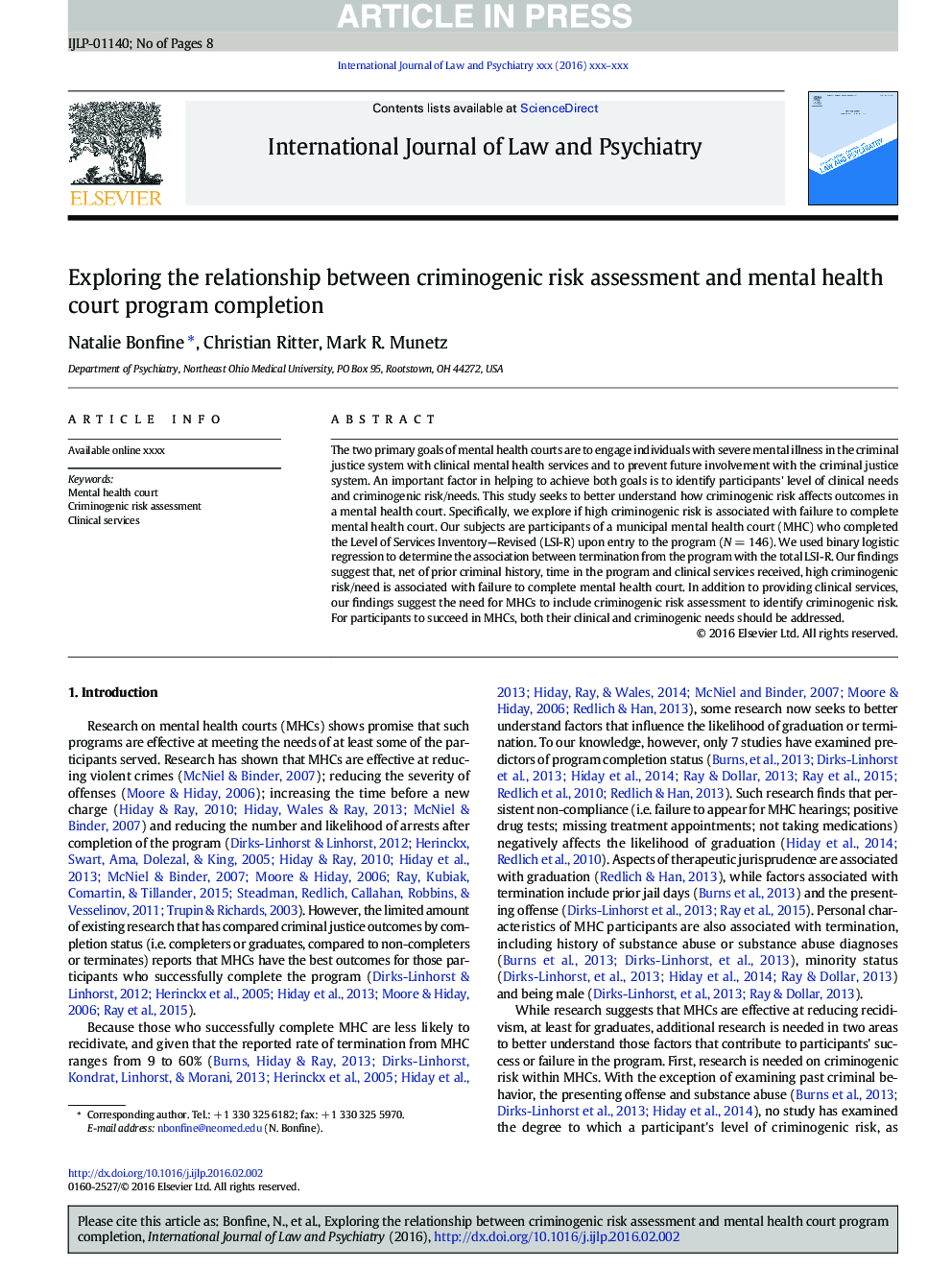| Article ID | Journal | Published Year | Pages | File Type |
|---|---|---|---|---|
| 6554614 | International Journal of Law and Psychiatry | 2016 | 8 Pages |
Abstract
The two primary goals of mental health courts are to engage individuals with severe mental illness in the criminal justice system with clinical mental health services and to prevent future involvement with the criminal justice system. An important factor in helping to achieve both goals is to identify participants' level of clinical needs and criminogenic risk/needs. This study seeks to better understand how criminogenic risk affects outcomes in a mental health court. Specifically, we explore if high criminogenic risk is associated with failure to complete mental health court. Our subjects are participants of a municipal mental health court (MHC) who completed the Level of Services Inventory-Revised (LSI-R) upon entry to the program (NÂ =Â 146). We used binary logistic regression to determine the association between termination from the program with the total LSI-R. Our findings suggest that, net of prior criminal history, time in the program and clinical services received, high criminogenic risk/need is associated with failure to complete mental health court. In addition to providing clinical services, our findings suggest the need for MHCs to include criminogenic risk assessment to identify criminogenic risk. For participants to succeed in MHCs, both their clinical and criminogenic needs should be addressed.
Keywords
Related Topics
Health Sciences
Medicine and Dentistry
Forensic Medicine
Authors
Natalie Bonfine, Christian Ritter, Mark R. Munetz,
